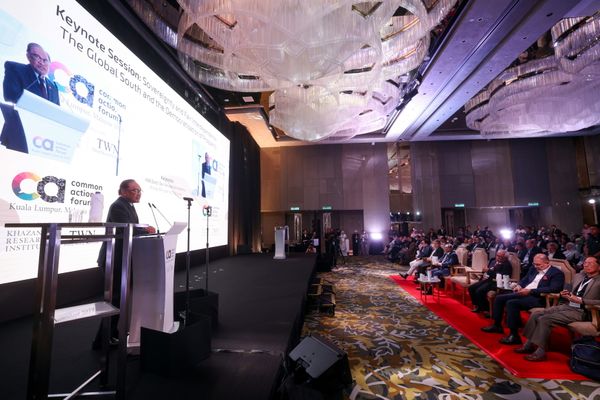KUALA LUMPUR, Dec 2 — Malaysia's 2025 Asean chairmanship theme of ‘Inclusivity and Sustainability’ represents a direct challenge to systems that marginalise developing nations, said Prime Minister Datuk Seri Anwar Ibrahim.
In fact, its vision of Asean centrality also demonstrates how regions of the Global South can maintain independence while engaging constructively with global powers.
“Asean stands as an example of how South-South partnership can advance a more equitable multilateral order,” he said in his keynote address at the Common Action Forum 2024 today.
As the world becomes more uncertain, Malaysia must use every regional and international platform available to address shared concerns directly with key partners.
Anwar said Malaysia’s engagement with the BRICS intergovernmental organisation is based on the country’s recognition that, as a rising upper-middle-income nation, it shares common economic concerns with other rising economic powers.
“Countries such as Brazil, Russia, India, China, South Africa, and other members of BRICS represent enormous market opportunities,” he said.
As the global order born from the Cold War collapsed, the Prime Minister emphasised the need for a more robust and fundamentally different kind of multilateralism, one that requires global rules prioritising equitable development, a genuine voice for developing nations, and strong measures against crimes against humanity.
“The multilateral system is a contested space. Powerful forces oppose progress, but the challenges confronting humanity — whether climate catastrophe or poverty — can only be solved collectively. No nation can do it alone,” Anwar said.
To make the world a fairer place, Malaysia and like-minded nations will need steadfast and credible partners standing beside them.
“This is why Malaysia has worked to forge stronger ties with champions of multilateralism, guided by a renewed foreign policy rooted in inclusion and justice,” he said.
The Global South faces challenges shaped by policies made without its full participation, and climate impacts, conflicts, economic instability, and cycles of debt have all been worsened by this exclusion.
Anwar also highlighted four key areas that urgently need reform, namely the international financial architecture, the international trading system, climate finance and climate justice, and the United Nations Security Council.
“The time for half-measures and incremental changes has passed. The choice before us is clear; continue with a system that marginalises most of humanity, or build a new order founded on genuine partnership, shared prosperity, and sustainable development,” he said.
— Bernama




